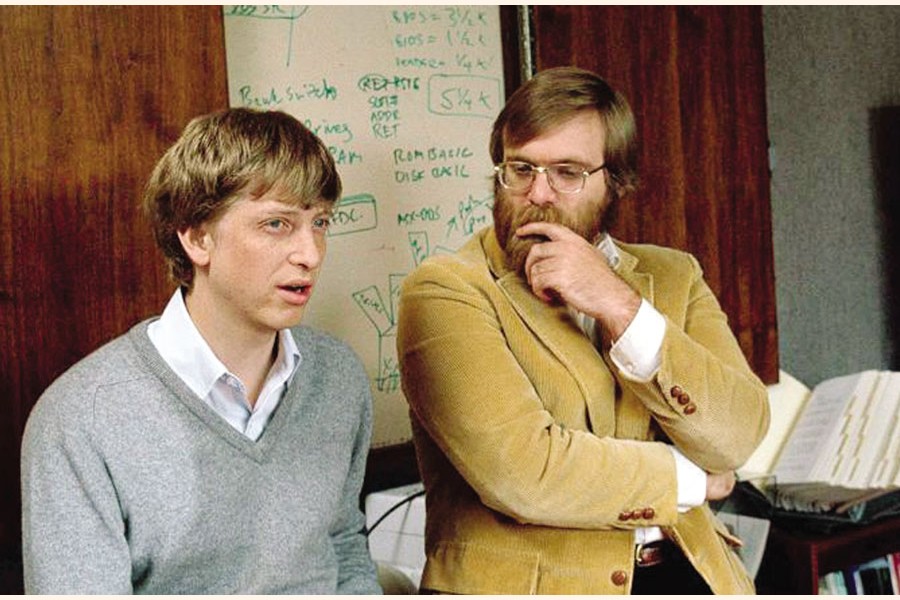
Published :
Updated :

People say choosing a co-founder is more important than choosing a life partner. Founders probably end up spending more time with their co-founders than their spouses. In the process of building a startup, founders often realise how difficult it is to find someone who complements them. There is actually a lot of thought that goes behind choosing a co-founder.
If one founder comes from a business background, then the other co-founder should come from a technology background. This is a common preference from investors as well. However, it is not a hard and fast rule. It is very much possible to hire technical knowledge and bridge any knowledge gap if the startup is funded properly. Along with that, having similar age, background, position, work ethic, etc., is a big advantage.
Two potential co-founders should hack a secondary project before fully committing to work together. The project could be a landing page or an easily buildable product that could come to use in the future. This will help them have a shared vision. Two co-founders may disagree on which road they take on their journey, but it is absolutely imperative that they share a common vision. Both of them need to be driven and motivated enough to see the vision through. It is important to keep in mind that sustained motivation is more important here than bursts of short-lived excitement.
This one is perhaps the most important compatibility factor. Most founder disagreements stem from a difference in underlying values. It is usually the subtle things like one founder may want to keep growing the company forever while the other may want to sell it at some point, or it could be something as simple as how the founders want the company's processes to be designed.
These two are probably the least discussed between co-founders. If one co-founder is going through heartbreak or divorce or depression, then it is going to affect the startup. Having a frank discussion about these issues as well as disclosing any underlying health conditions is the way to go.
Although it is natural to think that two founders will spend time outside of work and become good friends, in some cases it may not be possible. For instance, one founder may prefer to keep personal and professional lives separate. If such boundaries exist, it is always a healthy practice to discuss the frequency of contact outside work. However, it is advised not to be too professional in this regard. It is unnatural for two people to spend so much time together and not talk about their personal lives.
Before two founders decide to join forces, they must make sure that they also discuss what their tie-breaker or conflict resolution mechanism would be. It will make both of them better if they regularly give and receive constructive feedback to and from each other.
On the other hand, having the mentality to compromise for a greater cause is something humans find difficult when ego takes over. Sometimes it becomes more important to win an argument than to actually figure out the optimal outcome. This should not happen. The interests of the startup must come before one's own ego-stroking. Founders should also discuss a compromising mentality early on and list their non-negotiables.
A 50-50 split between a technical and business co-founder is not really a bad place to start if both of the founders are bringing in similar levels of value to the table. However, if one founder brings in money and/or traction then the ratio might need some revising. There is no scientific approach here. Founders just have to trust their gut feeling and negotiate a win-win scenario.
Same goes for salary. The amount could be equivalent to the cost of living a decent life in the city they are in; but it cannot be the prevailing market rate for someone of their profile since they are forgoing short-term cash for long-term upside potential. It is easier to compute salaries if both founders have similar circumstances. If both of them have day jobs, they can agree on a certain number of hours every day. But things get tricky when conditions differ -- for example, one founder has a family to support while the other doesn't. The other founder probably lives with parents or may live in a city where the cost of living is lower. In that case, a practical solution could be to settle on equal salaries after accounting for all living expenses which excludes any form of luxury expenses.
If two founders are starting together, they should have a vesting agreement signed. A vesting agreement is simply a contract that binds founders to spend a certain number of years in their startup in order to receive their equity. This ensures protection against a co-founder who may leave the company after a few months and take their equity with them. A usual vesting agreement has a four-year vesting with a one-year cliff -- meaning at the end of first year, 25 per cent of the equity will get unlocked, another 25 per cent after second year, and so on.
Many a time founders tend to choose the first person who is the closest to them. It could be a friend from university or a colleague at work. Best friends are not necessarily the best co-founders. When it comes to choosing a co-founder, it is alright to be picky and greedy. It should never be rushed. Onboarding a co-founder is easily one of the most important decisions a founder will make. The success of any early stage venture relies disproportionately on its founders.
The writer completed his BBA from IBA, University of Dhaka, and is the founder and CEO of Remotely, an invite-only freelancer marketplace in Bangladesh.
[email protected]


 For all latest news, follow The Financial Express Google News channel.
For all latest news, follow The Financial Express Google News channel.